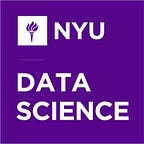Machine learning for earth observation with François Petitjean
Visiting scholar François Petitjean shares his experience at NYU CDS
1. How did you begin a career in the field of data science?
I did my PhD while employed by the French Space Agency (CNES); my role was to prepare the data analysis techniques to support the upcoming Sentinel-2 mission. The Sentinel-2 program, which most recently put a satellite successfully into orbit in March 2017, is a revolution for Earth observation: it provides a full high-resolution picture of our planet every 5 days. This represents a massive amount of data, and machine learning is vital for making sense of it.
2. What role does data science play in your research, and do you feel that the role changes due to the fast-paced nature of the field?
Data science and machine learning are central to my research on Earth observation; I was fortunate to join the fantastic Machine Learning group at Monash University in Melbourne, Australia in 2012, and to take up a tenured position there in 2016.
Working in data science is indeed fast-paced, and especially when working with images such as the ones captured by Sentinel-2. Recent years have brought a revolution with deep learning and we all have had to adapt quickly. I think this is, however, not unique to computer science; we’re seeing rapid developments in many fields. Think of CRIPSPR/Cas9 in genomics or the discovery of gravitational waves!
3. Your academic journey brought you to the U.S. from Australia, and you have also studied in France. Have you encountered data science in new ways through different cultures?
Although the way research is done around the world is getting more and more uniform, different cultures certainly bring new perspectives. For example, French researchers tend to think of research in terms of “interesting problems,” more than “valuable problems.” Australia is a little less industry-driven than the USA while having some of the smartest people I have met in the world (I’m thinking particularly of my colleagues Professors Geoff Webb and Wray Buntine). In the USA, I have learned how to think of where to go and how to get there efficiently: I learned from Americans how to drive a train at full speed while building the rail for it at the same time.
4. What has your experience at NYU been like? Has it had a major impact on the direction of your research or your approach to data science?
NYU has been fantastic; I’ve been given all the right conditions for a successful visit, including incredible meetings with CDS academics (I’m thinking particularly of Professors Foster Provost and Yann LeCun) and probably the best seminar series I have had the chance to see (with Professors Jean Ponce, Francis Bach, Yann LeCun again, Kyunhyun Cho). At CDS, you really feel that you are at the center of things.
Interview conducted by Paul Oliver
